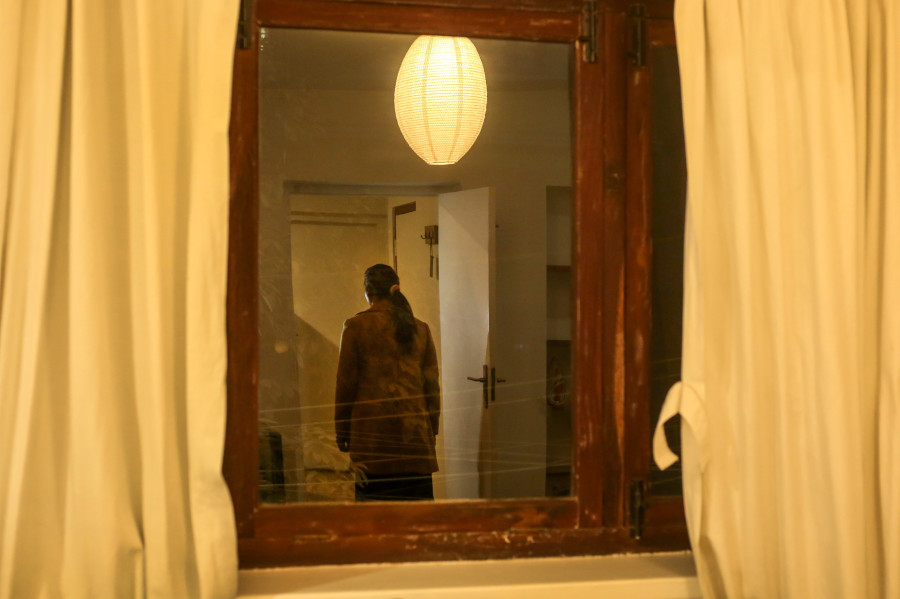Columns
Women survivors silenced
The transitional justice mechanisms cannot make the survivors of sexual violence invisible.
Binita Poudel
One of the most glaring issues in the ongoing discussions on transitional justice in Nepal is the invisibilisation of the survivors of sexual violence during the Maoist insurgency. As with most conflicts, the Maoist insurgency also witnessed many cases of sexual violence, including rape and murder after rape. And invariably, women constitute a majority of the survivors. Even after fifteen years of signing the Comprehensive Peace Accord and the promise to solve the gross violations of human rights, the survivors of sexual violence continue to live with the trauma of violence committed against them. What adds to the trauma is the perennial negligence of their calls for justice.
There are 314 rape cases among the 63,700 complaints at the Truth and Reconciliation Commission. Anecdotal evidence shows that the number of rape cases was many times more than the actual number reported. This is a society that often questions the survivor of the violence rather than the perpetrator in cases of sexual violence. The taboo linked to survivorship demotivates many women to call out their perpetrators, let alone seek legal recourse against them. Surviving the incident of violence is not enough for a woman; she has to relive the trauma as each of her utterances is scrutinised and questioned while giving the alleged perpetrator more benefit of the doubt than required. The fact that the incident happened decades ago adds to the degree of public scrutiny the survivor is subjected to, questioning her memory and asking her to forget the incident. A significant section of Nepali society still blames the woman's body rather than the rapist's criminality, leaving women with little agency to seek justice. Calls for justice in cases of sexual violence have, therefore, fallen into the cracks.
Ill intentions
As the government prepares to give a final push for an amendment to the Enforced Disappeared Enquiry, Truth and Reconciliation Commission Act in the current session of Parliament, survivors of sexual violence during the insurgency worry if their traumas will be brushed under the carpet yet again. Their concerns are not unfounded, as the last time the Sher Bahadur Deuba government tried to amend the Act through a bill in Parliament, it pushed for mass amnesty even in cases of gross violation of human rights, including murder. The trick last time was to play with the definition of 'heinous crimes', whereby any crime could be subjectively interpreted as 'not heinous enough' and thus eligible for amnesty. An obvious implication of such misinterpretations would be the watering down of cases of sexual violence, including rape and murder after rape, as minor incidents worthy of amnesty.
When the bill was presented by the Deuba government in July last year, Pushpa Kamal Dahal, the commander-in-chief of the insurgency, was part of the coalition government. Incidentally, these two men had come face-to-face multiple times before and during the insurgency. Now, they have swapped positions, whereby Dahal is the Prime Minister and Deuba is a major coalition partner. Gobinda Bandi, the Law Minister who introduced the bill in Parliament then, and is the prime minister's advisor now, has already promised to the international human rights community in Geneva last month that he would push for an amendment to the transitional justice act. As the Damocles' Sword of transitional justice hangs over their heads, Dahal and Deuba will undoubtedly push for a revision this time. But the question is: Will it soothe the wounds of the sexual violence survivors whose voices have been subdued so far? The answer is most probably in the negative.
Allies turned strangers
Any attempt at providing justice to survivors of sexual violence during the insurgency calls for trustworthy allies. Ironically, the Maoists, who enticed women to the insurgency with the promise of their emancipation, have left them to fend for themselves when it comes to soothing their wounds. Having gotten a taste of power politics, the Maoists have abandoned the idea of seeking justice for their former combatant comrades, let alone the entirety of Nepali women. Not only have the Maoists left their female comrades alone in their fight for justice, but they have also failed the civilian women survivors.
The Maoists' promise of emancipation of women got lost in the way they lusted for power after they turned into a mainstream political party. The former combatants have failed to provide even a sense of dignity to the women who faced sexual violence during the insurgency. In point 19 of their 40-point demand, the Maoists call for an end to the patriarchal exploitation and discrimination against women and access to the paternal property as their brothers. Today, they shy away from helping provide justice to women and girls in gross human rights violations, let alone the call for equal access to property rights. This is a direct affront to the women who had been promised equality and justice.
Winding path to justice
Despite international pressure and the resolutions to protect the survivors of sexual violence, the government has ignored the issue. The Convention on the Elimination of All Forms of Discrimination Against Women, which was ratified by Nepal in 1991, in its general recommendation 30, requires the state to prevent, investigate and punish all forms of gender-based violence, in particular, sexual violence and implement a policy of zero tolerance. The United Nations Security Council resolution 1820 requires that the state implement policies to address conflict-era cases of sexual violence. The United Nations Security Council resolution 1325 highlights the importance of women's full and equal participation in conflict resolution, peacebuilding, peacekeeping, humanitarian response, and post-conflict reconstruction. Being party to these resolutions, Nepal should work firmly towards fulfilling them. The Nepal Government, in its National Action Plan 2011-2016, committed to, among other things, protecting the rights of women and girls and preventing the violation of their rights during the conflict and the post-conflict period. However, it has failed to stay true to its words.
Considering how the cases of gross violation of women’s bodily autonomy and human rights are related to the insurgency, there is no doubt that these need to be dealt with through the transitional justice process. But transitional justice should not be used as an excuse to provide mass amnesty to the perpetrators while the survivors continue to live with their traumas.
The fact that the violence cases happened decades ago is already making the justice process tricky for women. Since some of the issues occurred in the early days of the insurgency, it is already close to three decades since; even the median time of the insurgency–the emergency era when the cases of gross violence of human rights escalated–is already two-and-a-half decades behind us. In the interim, many perpetrators might have died, or the evidence might have perished or been destroyed. In such cases, the state should offer a personalised apology to the survivors for failing to provide timely justice and support them with relief. Such a reparation should, however, not be confused with mass amnesty. The door to justice for the women survivors is closing fast, and we must hurry up before failing them again.




 18.12°C Kathmandu
18.12°C Kathmandu















